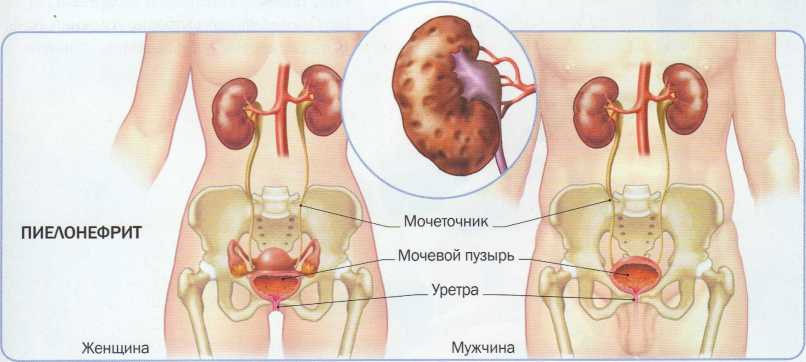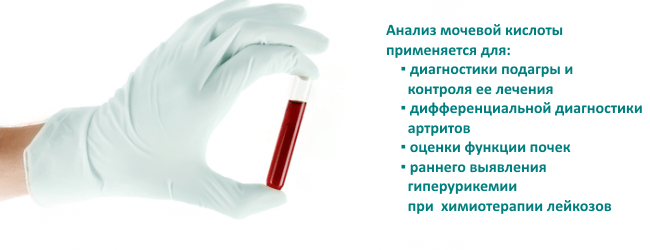Renal failure: what is it, symptoms, treatment
What is kidney failure?
This is a deterioration or cessation of the functioning of the kidneys.
Disruption of her work is associated with various diseases.
At the same time, the kidneys cannot form, filter, excrete urine.
It is not an independent disease, but a pathological condition that is a companion of various diseases. Including those not related to the kidneys.
Pathology affects not only their performance, but also the body as a whole. It occurs in both men and women. But due to the anatomical features, in manifestation, the nature of the course differs in different sexes.
Content
- The causes of kidney failure
- Provoking factors
- Types and stages of renal failure
- Symptoms
- Symptoms of kidney failure in men
- Symptoms of kidney failure in women
- Diagnostics
- Treatment
- Drug treatment
- Surgery
- Hemodialysis and peritoneal dialysis
- Nutrition (special diet)
- Folk remedies for renal failure
- Prophylaxis
- Recovery prognosis
- Related Videos
The causes of kidney failure
Acute renal failure (abbreviated as ARF) in 60% of cases is provoked by surgical interventions, injuries. In 2% - pregnancy.
Causes of Acute Renal Failure:
- problem urination;
- neoplasms;
- liver disease;
- kidney inflammation;
- lack of water in the body (dehydration);
- rapid drop in pressure;
- dysfunction of the cardiovascular system;
- autoimmune diseases (lupus,myasthenia gravis, autoimmune thyroiditis etc.)
- blockage of the ureter;
- massive destruction of blood cells;
- intoxication.
Chronic course pyelonephritis,glomerulonephritis most often provokes chronic renal failure (chronic renal failure).
The causes of chronic renal failure:
- kidney disease;
- non-compliance with the dosage of medicines;
- diseases that provoke a blockage of the urinary tract;
- intoxication;
- long-term diseases that cause kidney damage.
Provoking factors
The most common provoking factors of the syndrome of impaired renal function are:
- addiction;
- diabetes;
- malignant neoplasms;
- obesity;
- alcoholism;
- age-related changes;
- smoking.
Types and stages of renal failure

There are 2 forms of renal failure:
- acute renal failure (ARF);
- chronic renal failure (CRF).
Surge arrester - this is a sharp deterioration in kidney function. The process is associated with sudden inhibition, suspension of the removal of metabolic products from the body. The amount of excreted urine is sharply reduced, or absent altogether.
Chronic renal failure Is a slow decrease in the number of functioning structural units of the organ. Initially, symptoms may not appear. The syndrome provokes irreparable processes in the body. Destruction of kidney tissue occurs. Formed as a result of chronic kidney disease. Installed when performing the relevant research.
Acute renal failure is divided into:
- prerenal; It is associated with blood circulation in the kidneys. The process of urination is deteriorating. It happens in half of the cases.
- renal; Soreness of kidney tissue. At the same time, blood circulation is not disturbed, but urine is poorly formed.
- postrenal; The process of urine formation is not disturbed, but it cannot drain through the urethra.
Acute renal failure can be provoked by both external and internal factors. Most often occurs in people of advanced age. With properly selected treatment, kidney function is fully restored.
Chronic renal failure is not a disease. It is a syndrome with many signs showing decreased kidney function.
Different classifications of stages of chronic renal failure are used. The most common is associated with the patient's condition.
Stages of progression of chronic renal failure:
- latent;
- compensated;
- intermittent;
- terminal.
- At the 1st stage, some of the nephrons begin to die, and the rest begin to work actively. As a result, they exhaust themselves. Symptoms are rare. There may be some changes in urination.
- On the 2nd - the remaining nephrons can no longer cope with filtration. The patient's condition worsens. He gets tired quickly.
- On the 3rd - The patient's well-being is noticeably worsening. The skin becomes dry. Urination becomes more frequent.
- On the 4th - the most severe form. The skin turns yellow. The patient wants to sleep constantly. Without proper treatment, a person dies.
Read also:Polyuria
Symptoms

The renal tissue dies at different stages of the disease are not the same.
Therefore, there are several stages of progression of chronic renal failure.
Symptoms appear at each stage.
-
Latent stage (latent) - there are no symptoms. The patient is unaware of the pathology. But with power loads, it may occur:
- lethargy;
- dry mouth;
- asthenia;
- drowsiness;
- more urine than usual.
-
Clinical stage - symptoms of poisoning appear:
- headache;
- vomit;
- ammoniacal odor from the mouth;
- a decrease in the volume of urine;
- cardiac arrhythmia;
- lifelessness of the skin;
- diarrhea;
- nausea;
- drowsiness;
- tachycardia of the heart;
- fatigue.
- Decompensation stage - complications in the form of frequent colds, inflammatory processes of the urinary system are added to the above.
-
Terminal stage (stage of compensation) - the work of all organs is disrupted, as a result of which the death of a person occurs. Symptoms such as:
- straw color of the skin;
- neurological disorders;
- heavy smell of ammonia from the mouth.
Kidney failure symptoms in men
The progression of the abnormal process is reflected in the form of symptoms. A man may initially experience pain during urination, loss of appetite. Symptoms depend on the form of the disease.
Symptoms Surge arrester in men, depending on the stage:
- First stage
- nausea;
- pale complexion, body.
- Second stage
- a strong reduction in the volume of urine excreted;
- swelling;
- lethargy.
- Third stage
- the process of urine formation is normalized;
- the puffiness disappears.
- Stage four
- the work of the kidneys resumes.
CRF symptoms in men, depending on the stage:
- Hidden stage. There are usually no symptoms. Fatigue may appear during power loads. A urine test shows the presence of protein.
- Compensatory stage. The volume of excreted urine increases.
-
Intermittent stage. The working capacity of the kidneys is significantly deteriorating. The stage is different:
- decreased appetite;
- lethargy;
- dry skin;
- feeling of thirst;
- yellow skin.
- Terminal stage. The volume of urine is reduced, or absent altogether. From the patient comes urine smell.
Symptoms of kidney failure in women
Signs of renal failure in women are related to the extent to which the kidney function was impaired:
- Initial degree - there are no symptoms of the development of pathology, but changes are already taking place in the tissues.
- Oliguric stage - symptoms begin to appear and progress. There is powerlessness, shortness of breath, sluggishness, pain in the abdomen, pelvis, nausea, cardiac arrhythmia. The volume of urine excreted within 24 hours decreases. Heartbeat increases. Duration - 1.5 weeks.
- Polyuric stage - the patient's well-being improves. The urine is getting bigger. But infectious and inflammatory diseases of the urinary system can develop.
- Rehabilitation stage - The kidneys for the most part restore their filtration capacity. If an impressive number of structural units have suffered during the acute form of renal failure, then the organ can no longer fully recover.
In the beginning, signs of kidney failure in women may not even be noticed. But with inflammation, symptoms arise that are already difficult to miss.
Chronic renal failure appears due to the progression of the acute form.
Diagnostics
In order to start treatment for renal failure, it is required to diagnose it. The following methods are used:
- biochemical blood test, urinalysis (biochemical analysis can detect changes in urea parameters, creatinine. Decrease or increase indicators of calcium, phosphorus, potassium and magnesium);
- chest x-ray;
- ultrasound examination (ultrasound);
- organ biopsy (a biopsy is done if there are problems with determining the correct diagnosis);
- Reberg-Tareev test (using the Reberg-Tareev test, the excretory capacity of the kidneys is assessed. For this method, you need to take blood, collect urine);
- ultrasound doppler (Doppler ultrasonography of the kidneys checks blood circulation in the vessels);
- CT scan;
- chromocystoscopy (with chromocystoscopy, a coloring liquid is injected into a person intravenously. It gives an unusual color to urine and allows you to examine the bladder);
- general analysis of blood, urine (OAM), (a general blood test can show a reduced, increased number of blood corpuscles, hemoglobin. In the urine, protein will be present);
- magnetic resonance imaging (MRI);
- Zimnitsky's test (Zimnitsky's test makes it possible to find out the volume of urine excreted during the day and night. For this, the patient collects it 24 hours);
- electrocardiography (ECG), (electrocardiography is mandatory for all patients, it allows you to learn about problems associated with the heart).
Read also:Chronic kidney disease (CKD)
Magnetic resonance imaging, ultrasound, computed tomography are used to detect the causes of narrowing of the urinary tract.
Treatment
Treatment of renal failure in men and women takes place only under the supervision of a nephrologist or urologist in a hospital. At the beginning, they take measures focused on eliminating the causes, restoring self-regulation, and dysfunctions of the body.
In an acute form, a person can be placed in an intensive care unit. Here they carry out anti-shock therapy, fight against poisoning, dehydration.
In the chronic form, diuretics are prescribed, saline solutions are administered. During treatment, the patient follows a diet. Treat the diseases that caused the syndrome.
In difficult cases, an organ transplant is recommended.
Drug treatment

Symptoms and treatment are related to the individual's condition.
Depending on the results of the analysis, the patient's well-being, antibacterial, hormonal, and diuretic drugs are prescribed.
Produce: hemosorption, peritoneal dialysis, blood transfusion, hemodialysis, plasmapheresis.
All medications are taken only under the supervision of a specialist. Self-medication can be fatal.
List of drugs prescribed for renal failure:
- Ticarcillin;
- Losartan;
- Maltofer;
- Dopamine;
- Epovitan;
- Polysorb;
- Cocarboxylase-Ellara;
- Enoxacin;
- Mannitol;
- Amikacin;
- Enalapril;
- Polyphepan;
- Reogluman;
- Erythromycin;
- Cefradine;
- Renagel;
- Trometamol;
- Furosemide;
- Cefazolin;
- Enterodesis;
- Epoetin;
- Meslocillin.
Sorbents, drugs for the treatment of arterial hypertension, anemia, metabolic processes, etc. are used.
Surgery
If, during renal failure, treatment has not shown results, the kidney has already lost its ability to filter, the patient needs a kidney transplant. This occurs at the last stage of the disease.
It is transplanted from a living person, or a dead one. The recipient or donor can live with one kidney.
After surgery, the patient takes medications aimed at reducing the body's defenses. This is done so that the recipient's body does not reject the transplanted organ.
Hemodialysis and peritoneal dialysis

Hemodialysis Is an artificial blood purification using an apparatus. It is prescribed if it is no longer possible to help the patient in other ways.
After the procedure, the patient's well-being improves, but for a short time.
Peritoneal dialysis - a way to cleanse the blood from toxins. It is based on the filtration capacity of the peritoneum.
During this process, a cleaning fluid is injected into the abdominal cavity. She takes away all the toxins. After that, they take her out.
Read also:Hemodialysis: what is hemodialysis, indications, contraindications, types of procedures
Nutrition (special diet)

For the duration of treatment, a diet is required.
It is necessary to reduce the amount of protein and salt consumed.
The patient's diet should be dominated by high-carbohydrate foods.
List of foods that can be consumed
- green or herbal tea;
- bread;
- oil (vegetable, animal);
- fruits vegetables;
- sugar;
- cereals;
- juices, compotes;
- pasta;
- dairy products (cheese is not allowed);
- honey;
- cereals.
List of foods that should not be consumed
- hot spices;
- coffee;
- dishes with a lot of soda, salt;
- cheese;
- legumes;
- carbonated drinks;
- mushrooms;
- some vegetables - sorrel, spinach, radish.
- animal fat;
- fish, meat broth.
It is allowed to drink water no more than 2 - 2.5 liters. Protein - 30-60 grams for all meals. Salt - 3 - 5 grams.
Folk remedies for renal failure

During kidney failure, herbal treatment is performed only during the recovery stage.
Before taking any of them, you must consult with a competent nephrologist.
Traditional medicine recipes
- Blueberry: You need to take 1 cup of boiling water and pour it into 1 cup of blueberries. Cook for 20 minutes over low heat. Strain. Divide the resulting broth by 4 and take during the day.
- Horsetail (1 teaspoon), motherwort (1 tablespoon), birch leaves (1 teaspoon). All herbs need to be combined and pour 1 glass of boiling water. Put to insist. Take 1 tablespoon 3 times a day.
- Garnet: Take the pomegranate peel. It is dried and crushed to a powdery state. 1 teaspoon of this powder, pour 1 glass of water. Cook for 20 minutes. Defend for 2 hours. Take before meals 1 tablespoon 3 times a day.
- Burdock: The root of the plant (1 tablespoon) is poured with 1 glass of boiling water and kept overnight. The next day they pump. They drink during the day, several sips. The course is 1 month.
Prophylaxis
- In order to avoid serious health problems, for any symptoms, it is necessary to go to a nephrologist in a timely manner.
- You cannot take medications without the appointment of a specialist. Some of these can interfere with kidney function. Timely drink the drugs prescribed by the doctor.
- If there are diseases such as arterial hypertension, glomerulonephritis, diabetes you need to undergo regular examinations.
- Do not consume alcoholic beverages, drugs.
Recovery prognosis
It all depends on the position of the patient, the stage of the syndrome. In acute renal failure without complications, 90% of people recover safely.
In the event of complications, death occurs in 25-50% of cases. The most common causes of death: blood poisoning (sepsis), damage to the nervous system, circulatory problems.
In the case of chronic renal failure, mortality depends on the age of the patient, the state of his body, diseases, due to which there were problems with filtration. Organ transplantation, artificial blood purification made it possible to reduce the number of deaths.
According to statistics, 600 Europeans out of one million are affected by this disease. The number of patients is increasing by 10 - 12% every year. People of the age get sick 5 times more often.
Men have a longer urethra, so renal failure is less common in them than in women.



